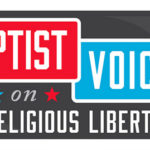Posted: 2/01/08
Baptists called to combat
ignorance about religious liberty
By Jeff Huett
Baptist Joint Committee for Religious Liberty
ATLANTA—In an increasingly pluralistic culture, ensuring religious freedom for all requires more education about religion, further understanding about the proper relationship between church and state, and an emphasis on the historic Baptist principle of religious liberty, said a panel at the New Baptist Covenant Celebration.
Cheryl Townsend-Gilkes, professor of Sociology and African-American Studies at Colby College in Waterville, Me., suggested that the very definition of religious liberty in America “fosters and sustains tremendous religious and cultural diversity.” However, she warned, “the tremendous religious and cultural diversity sometimes challenges our commitment to the separation of church and state.”
Bolstering the commitment will require combating ignorance about religion in America, she said, even to the point of creating a class taught in colleges and universities called “religion appreciation.” She said the course should be taught much like a music appreciation course, where students are required to listen to a symphony, all the while learning to recognize individual instruments.
| • See latest photos and the latest video clips from the New Baptist Covenant Meeting. (And go here to see our complete coverage of the event). |
Brent Walker, a constitutional law expert and executive director of the Baptist Joint Committee for Religious Liberty, agreed that the “time-honored” principles of religious liberty and church-state separation are threatened today, made worse by a pervasive belief that religious disputes should be settled by the majority.
“The bill of rights is, by definition, counter-majoritarian, Walker said.
“America is one of the most religious and most religiously diverse nations on the face of the earth,” he said. “But despite our religious passion and pluralism, we have been able to avoid the religious conflicts and wars that have punctuated history and plague much of the world today.”
Walker put forth what he called the golden rule for church-state separation: “I must not insist that government promote my religion if I don’t want government to promote somebody else’s religion, and I should not permit government to harm someone else’s religion if I don’t want religion to harm my religion.”
Cynthia Holmes, a St. Louis attorney and former moderator of the Cooperative Baptist Fellowship, warned that the future of the historic Baptist principle of church-state separation hinges on our treatment of the principle today.
“We can’t guarantee that our kids will be free to practice their religion if we deny that freedom to any other group,” she said.
“As Baptists, we must champion the historic Baptist position on religious liberty. … As Baptists, we must understand that freedom to exercise religion does not mean our freedom to impose our religion on everyone else by government favoritism.” Holmes said.
Panelists were quick to point out that the proper relationship between church and state does not divorce religion from the public square.
“Church-state separation does not keep religious voices from influencing public policy or acknowledging our religious heritage in the public square,” Walker said. “But it does mean the government should not be able to pass laws or take official action that has the primary effect of advancing or prohibiting religion.
“The best thing government can do for religion is to leave it alone,” he said. “Neither should do the work of the other.”
Holmes echoed Walker’s sentiments on the rightful place of religion the public square, but suggested the problem occurs when Christians believe that their position is “the” Christian position.
Walker added that the work of the 71-year-old Baptist Joint Committee in extending and defending religious liberty for all is a prototype for the kind of “Baptist togetherness” espoused by the New Baptist Covenant. The BJC is comprised of 15 Baptist bodies, including American Baptist Churches USA, the Cooperative Baptist Fellowship, National Baptist Convention of America, Inc., and Progressive National Baptist Convention, each partnering organizations in the New Baptist Covenant.














We seek to connect God’s story and God’s people around the world. To learn more about God’s story, click here.
Send comments and feedback to Eric Black, our editor. For comments to be published, please specify “letter to the editor.” Maximum length for publication is 300 words.